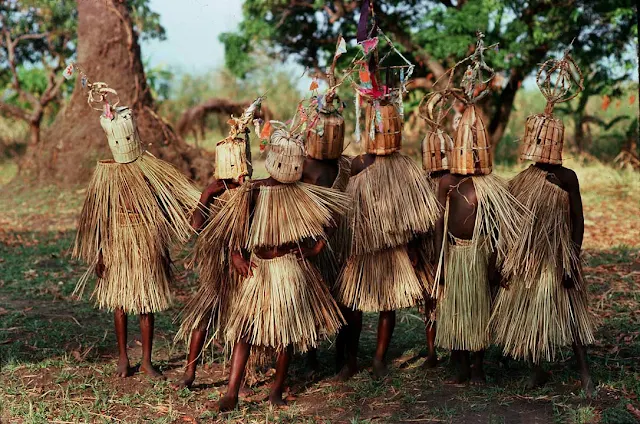There are many stages that a man has to pass in life. These are periods when people are metaphysically and sociologically made new beings with new social roles: children become adults, men and women are made husbands and wives and the deceased are made ancestors. The rituals associated with each one of them are called rites of passage. Each of these stages is distinctive and is observed in African communities with religious ceremonies. They include birth rites, puberty rites, marriage rites and funeral rites.
Since these rites differ from one ethnic group to another, we would examine the rites among the Ashanti people in Ghana.
The Ashanti
The pregnant Ashanti woman (in Ghana) has many restrictions. She is not allowed to leave the compound and she is to cover her head and breasts when going out become unavoidable. She must not be told that she is pregnant. She must not abuse a divinity. She must not sight blood or any ugly thing. Failure to observe these can lead to a miscarriage or an abnormal child. She is kept indoors for the first three months. She leaves for her parent’s house when the pregnancy becomes eighth months. She stays there till delivery. Female attendants are called in on the delivery day. No special attention is given the new child for the first eight days because no one knows if the child decides to stay on earth. Clothes are provided for the baby and a name is given after eight days. The child is named in line with the day of birth. A baby boy born on Friday is called Kofi and the one on Saturday is called Kwame.
Puberty
An Ashanti girl marks her puberty rite at the first sign of her menstruation. She informs her mother as soon as she sees her menses for the first time. The mother informs the community. She returns home to pour libation to Nyame (god) and the ancestors. The girls pubic and armpit hair are shaved. This symbolizes a new baby in adulthood. A ceremony is performed. Everybody is given enough to eat and to drink. Then the girl is ripe for marriage.
Marriage
When an Ashanti man decides to take a girl as wife, he presents gift to his parent-in-law. It could be clearing the coca farm. This is done to curry the favour of the girl’s parents. After the parents’ agreement, the ancestors seal the marriage. The girl is then allowed to follow her husband home.










0 Comments